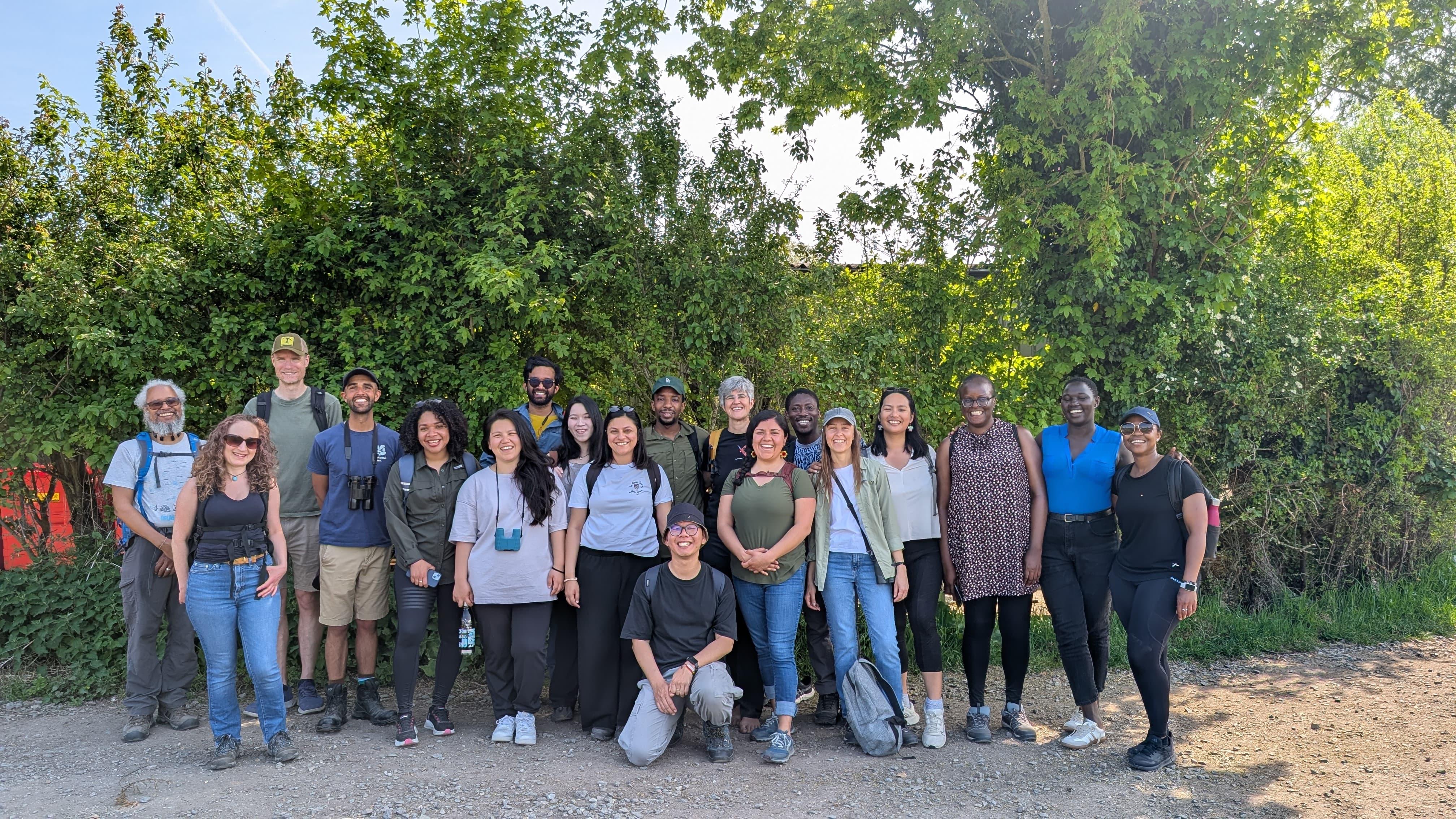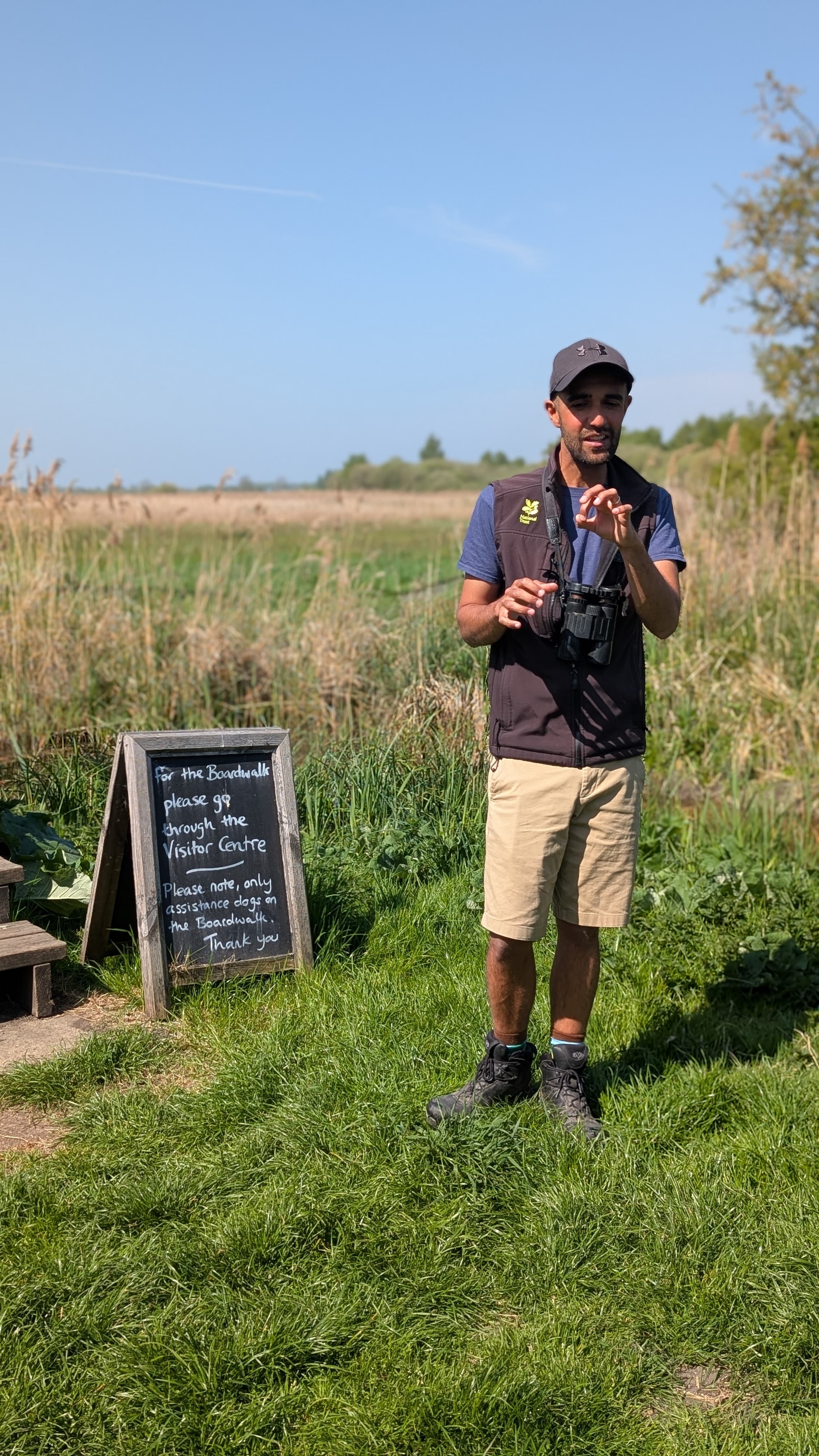
Submitted by Albina Mamedova on Tue, 13/05/2025 - 14:31
The University of Cambridge's Masters in Conservation Leadership programme recently continued its long-standing tradition of field learning with a visit to the National Trust's Wicken Fen National Nature Reserve, England's most famous fen and the Trust's very first nature reserve.
This year's cohort of international conservation professionals had the privilege of being guided by Ajay Tegala, the reserve's ranger, wildlife television presenter and acclaimed author of "Wetland Diaries" which chronicles life at this remarkable site.
Established in 1899, Wicken Fen represents a precious fragment of undrained fenland habitat—of which more than 99% has been lost across East Anglia. This ecological significance, combined with over a century of conservation work and scientific monitoring, makes it an invaluable case study for conservation leaders.
"Wicken Fen has a very long association with the University of Cambridge, and we have been hosting the Masters in Conservation Leadership cohorts for a number of years now," explains Ajay Tegala, whose expertise spans wetland ecosystems, conservation management and public engagement.
The visit offered students direct insights into the Wicken Fen Vision—an ambitious 100-year landscape-scale rewilding project expanding the reserve to create a 53 square kilometre nature recovery area. Students observed first-hand how free-roaming Highland cattle and Konik ponies serve as natural ecosystem engineers, creating diverse habitats through their grazing patterns.
For Ajay Tegala and the National Trust team, these visits provide valuable international perspectives. "We love meeting conservation students from across the globe and hearing their experiences as well as learning what they make of Wicken Fen—it puts our work into a wider context and provides some interesting perspectives and ideas," he shares.
The field experience highlighted the challenges of conservation in densely populated parts of the UK. "We hope students take away the multiple challenges of protecting rare wildlife in an area surrounded by development, but also the ambition of the work the National Trust is undertaking to safeguard species, mitigate the impacts of climate change and connect people from all backgrounds to the nature around them," says Ajay Tegala.
These global exchanges often lead to fascinating discussions about scale and context in conservation. "The different perspectives really stand out," notes Ajay Tegala. "What we think of as wild and vast in an English setting is miniscule compared to other wetlands and peatlands in other parts of the world. It's always interesting to debate conservation priorities and come up with creative solutions."
The visit exemplifies the Masters programme's commitment to providing students with practical exposure to diverse conservation approaches. By combining theoretical knowledge with field-based learning at sites like Wicken Fen, Cambridge continues to prepare its international cohorts to address complex conservation challenges in their home countries and beyond.
"Most of all, I enjoy the interest and enthusiasm that the students bring!" – says Ajay. It's precisely this enthusiasm that the Masters in Conservation Leadership programme aims to harness, equipping the next generation of conservation leaders with the knowledge, networks and inspiration needed to create positive change worldwide.



